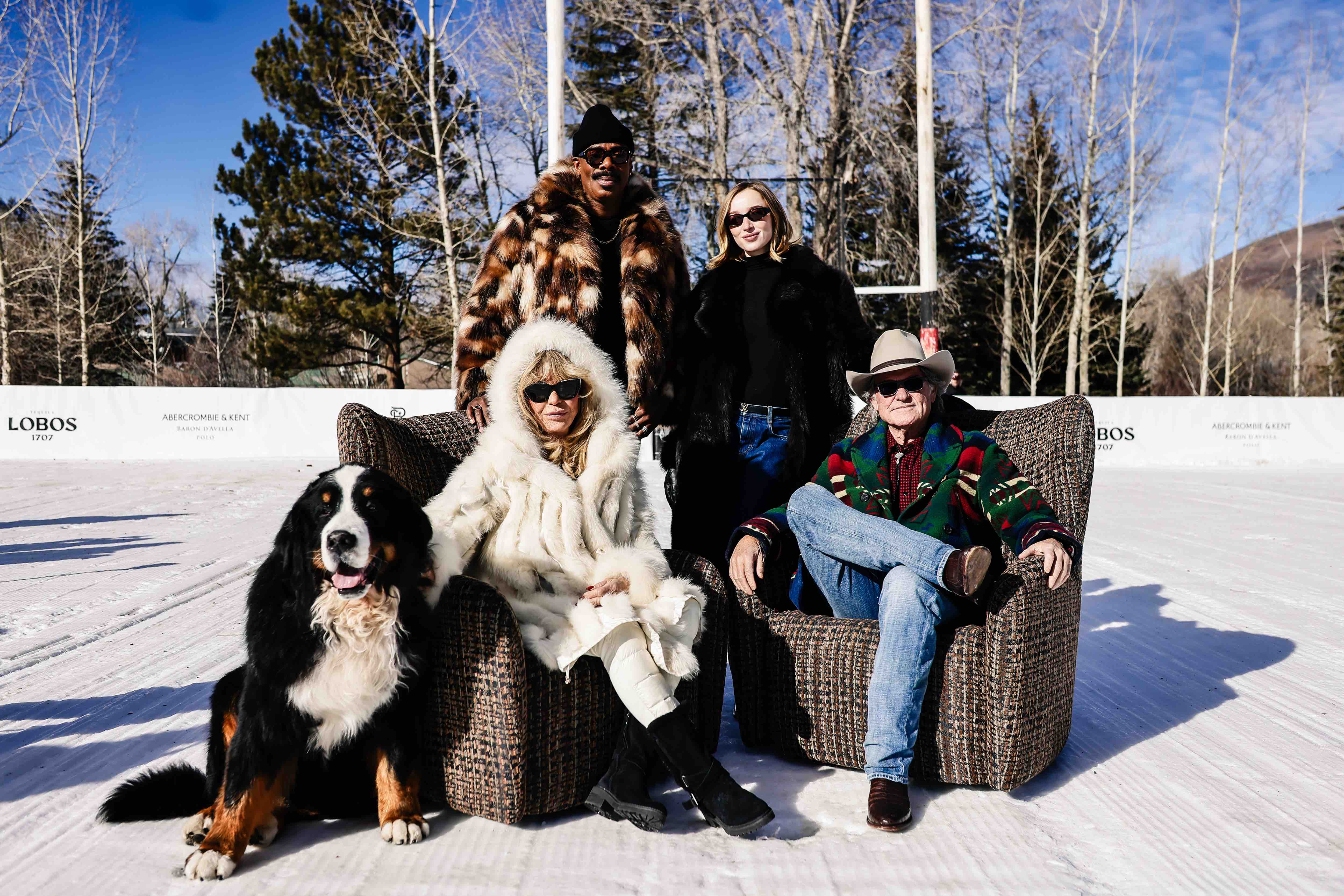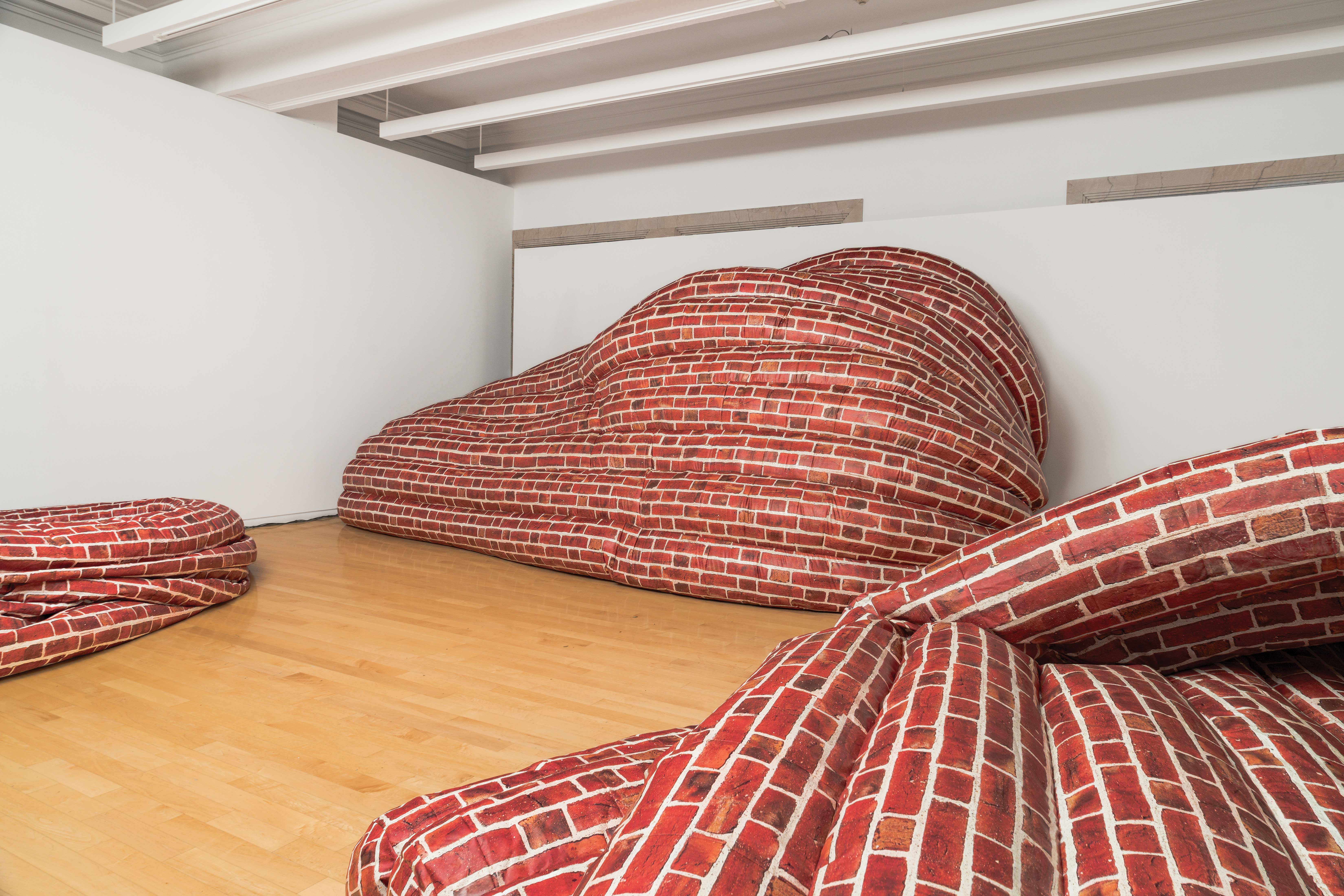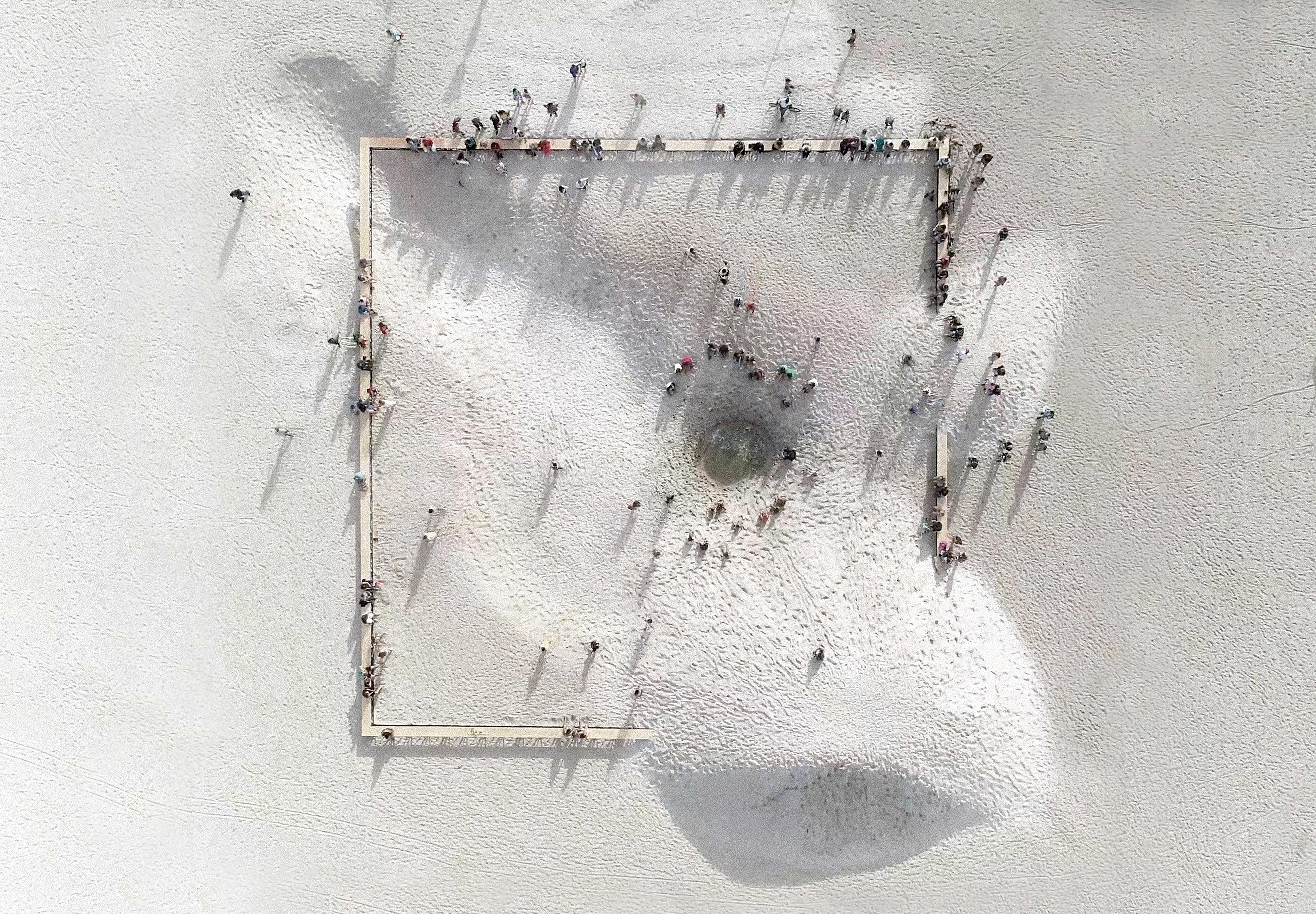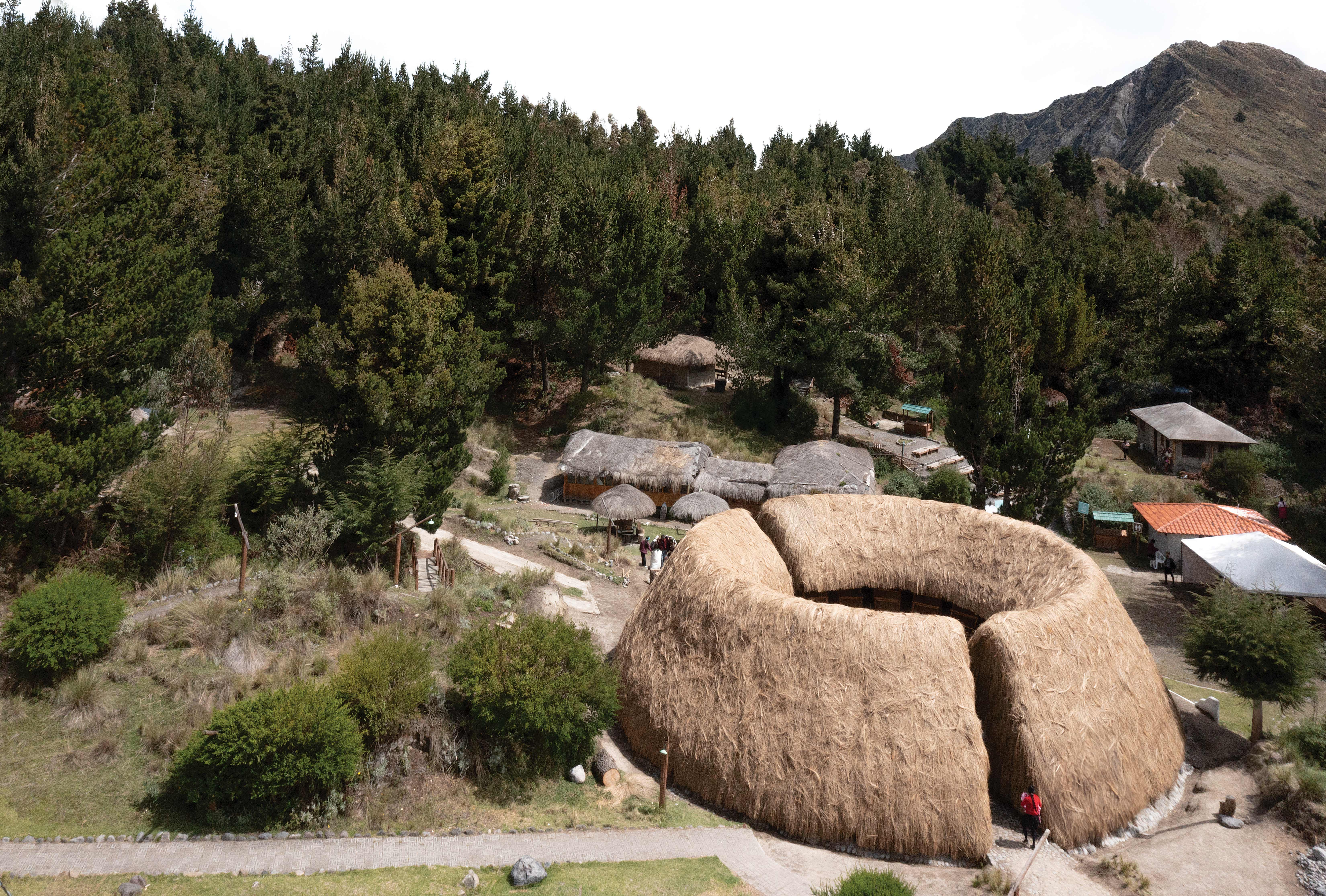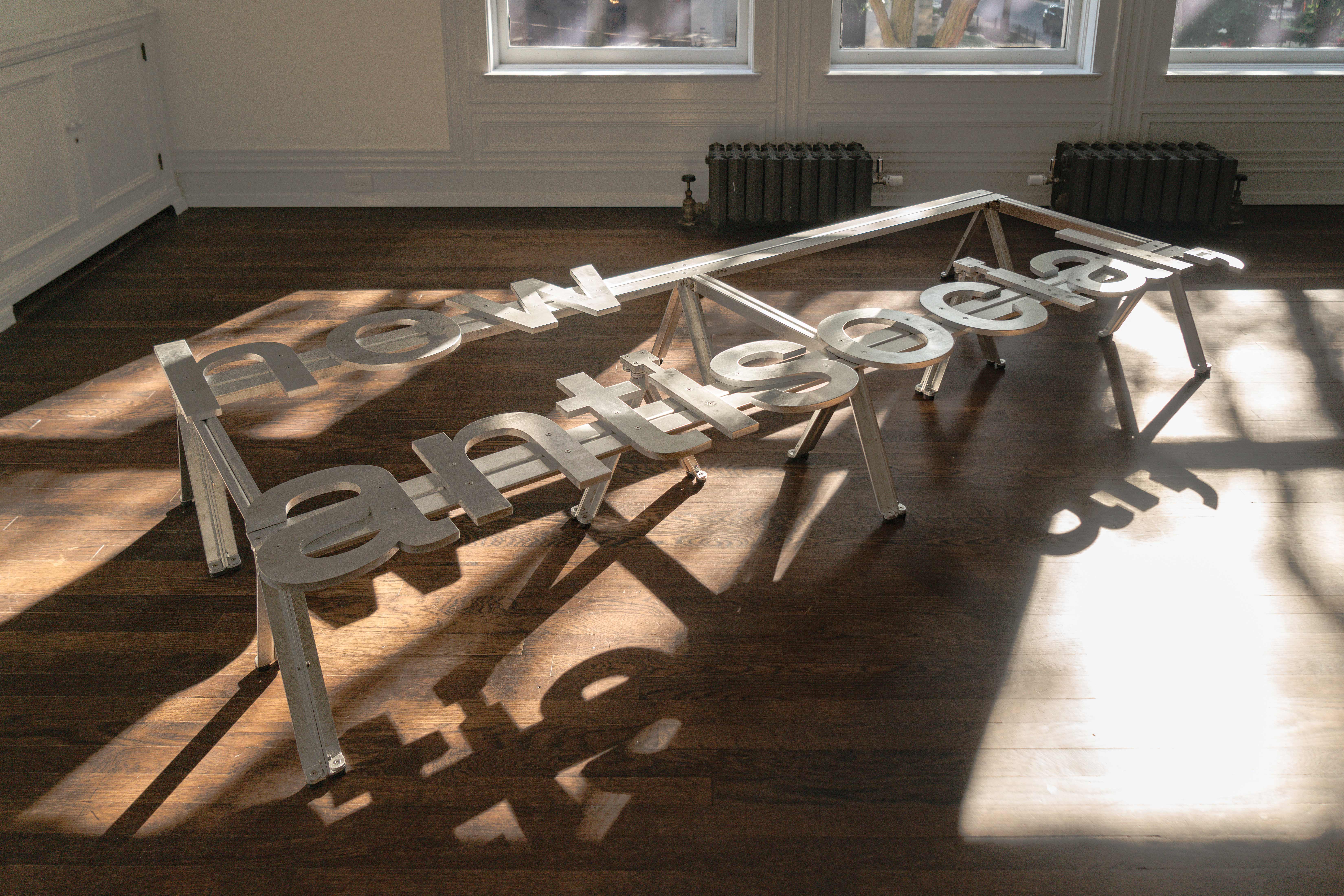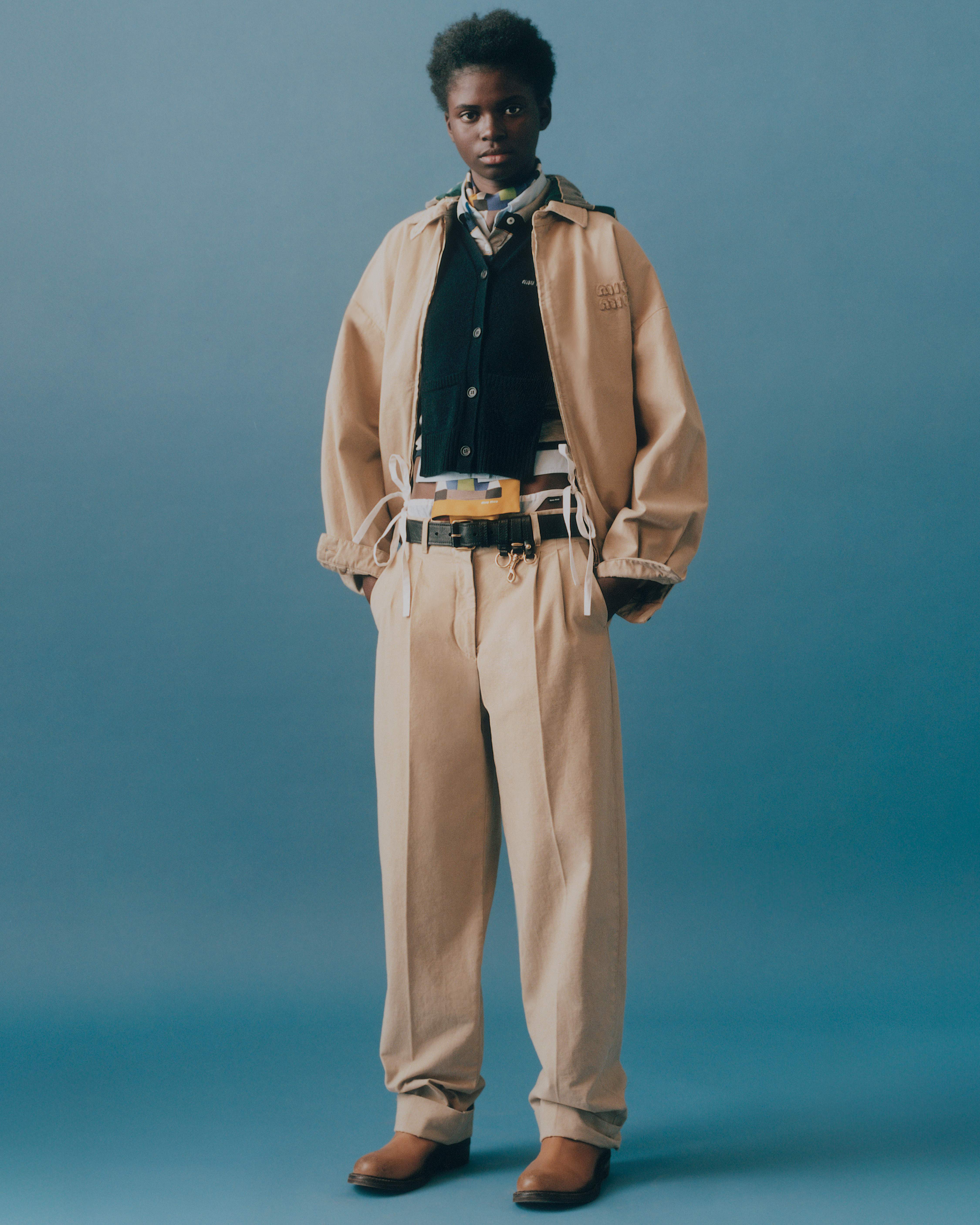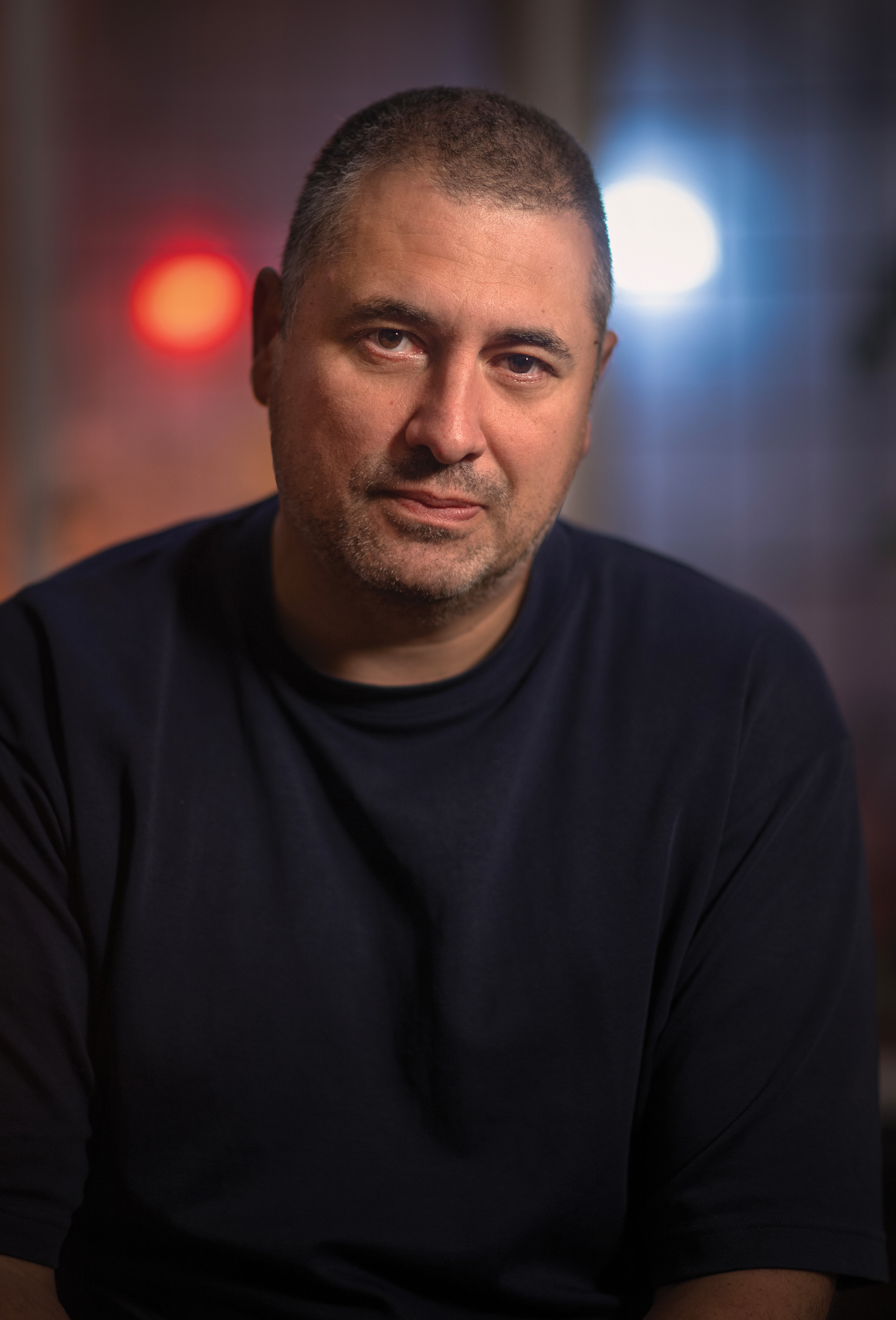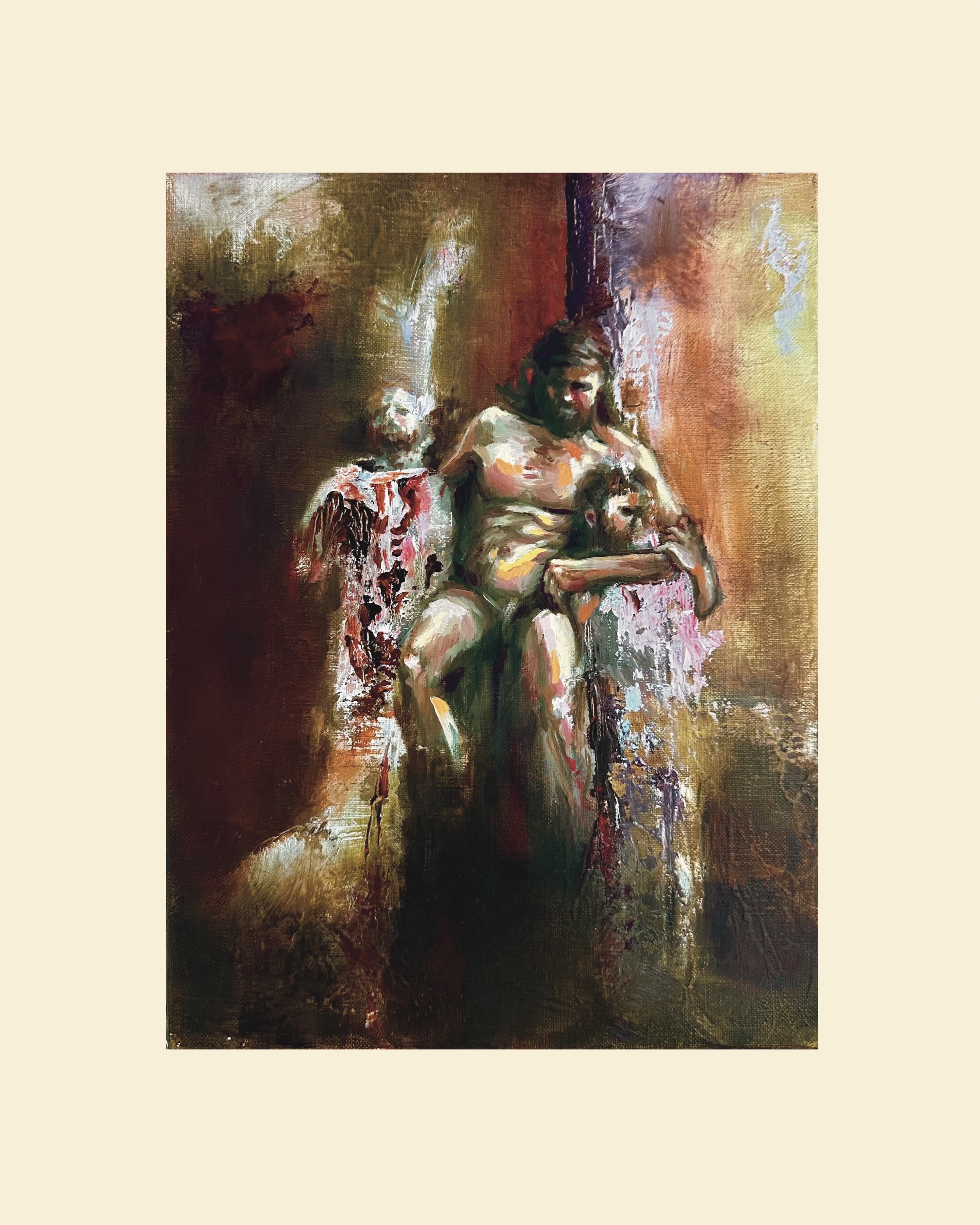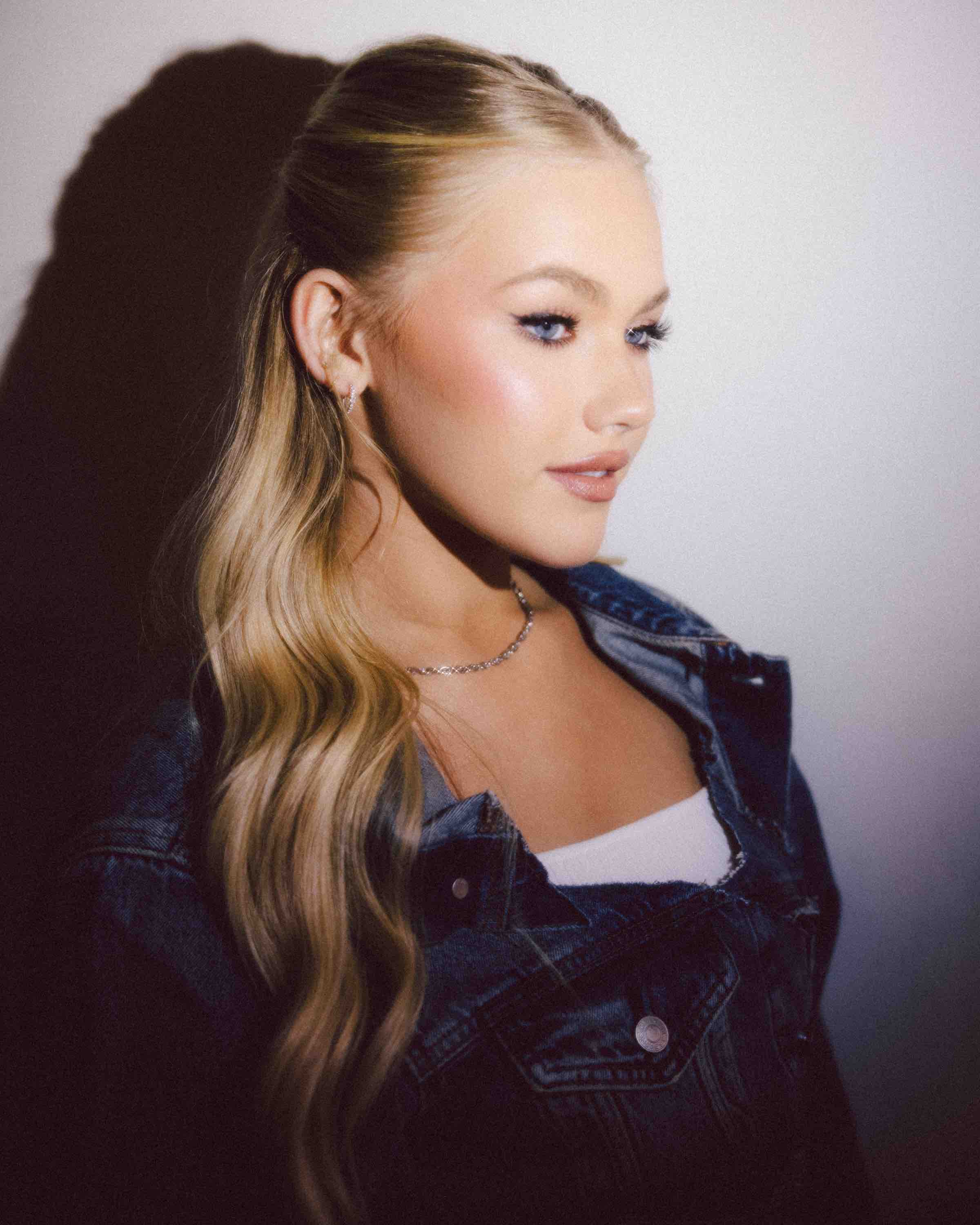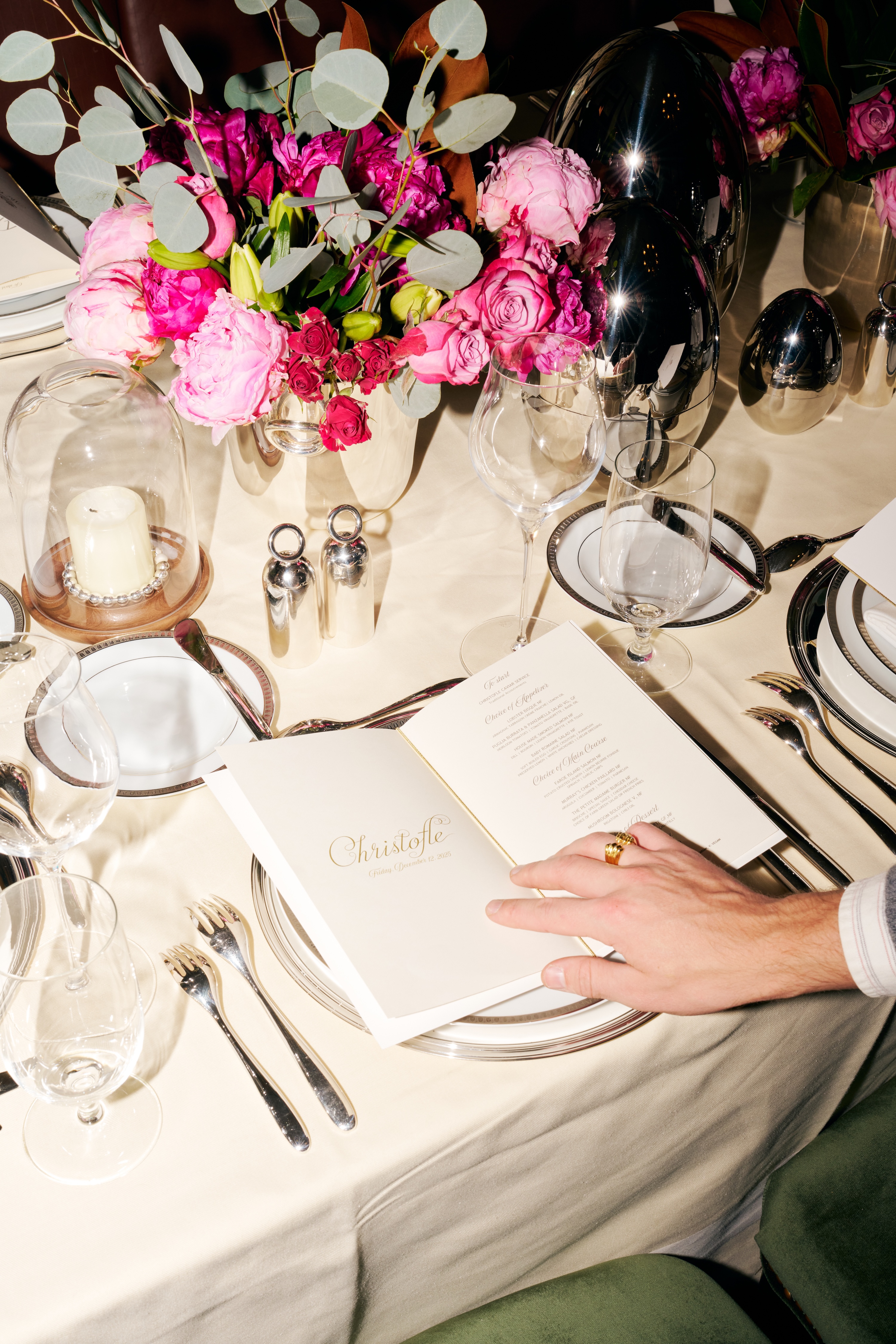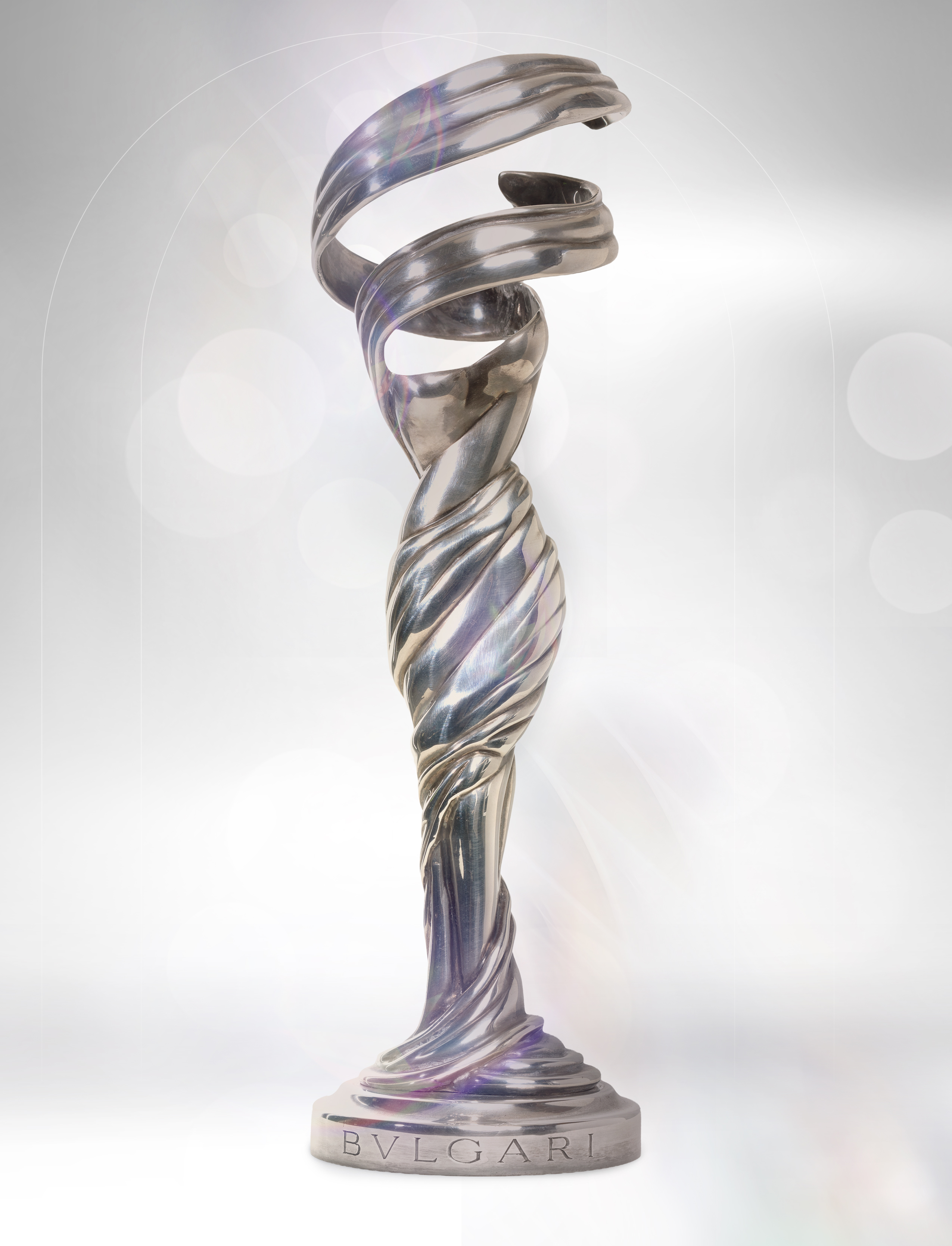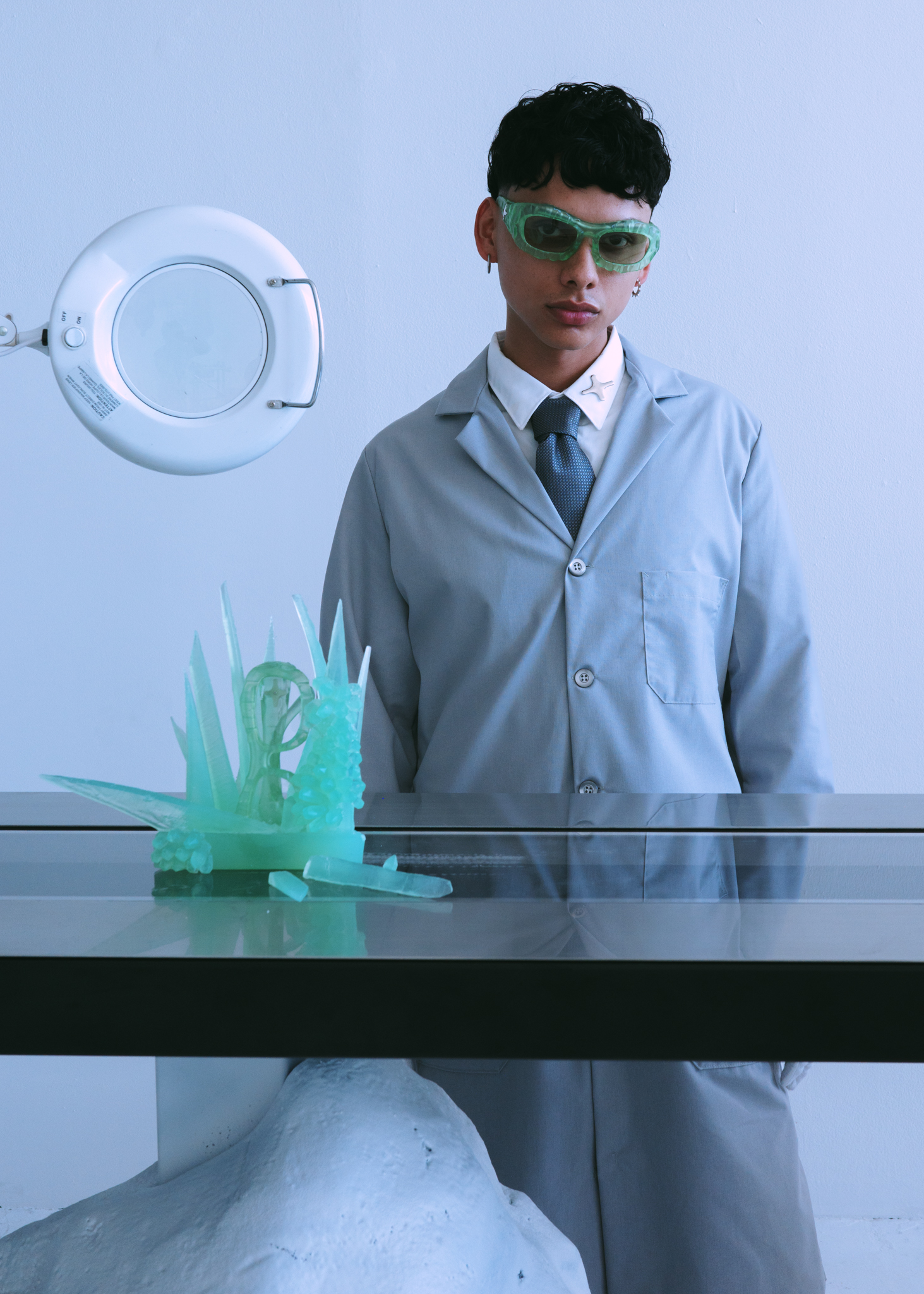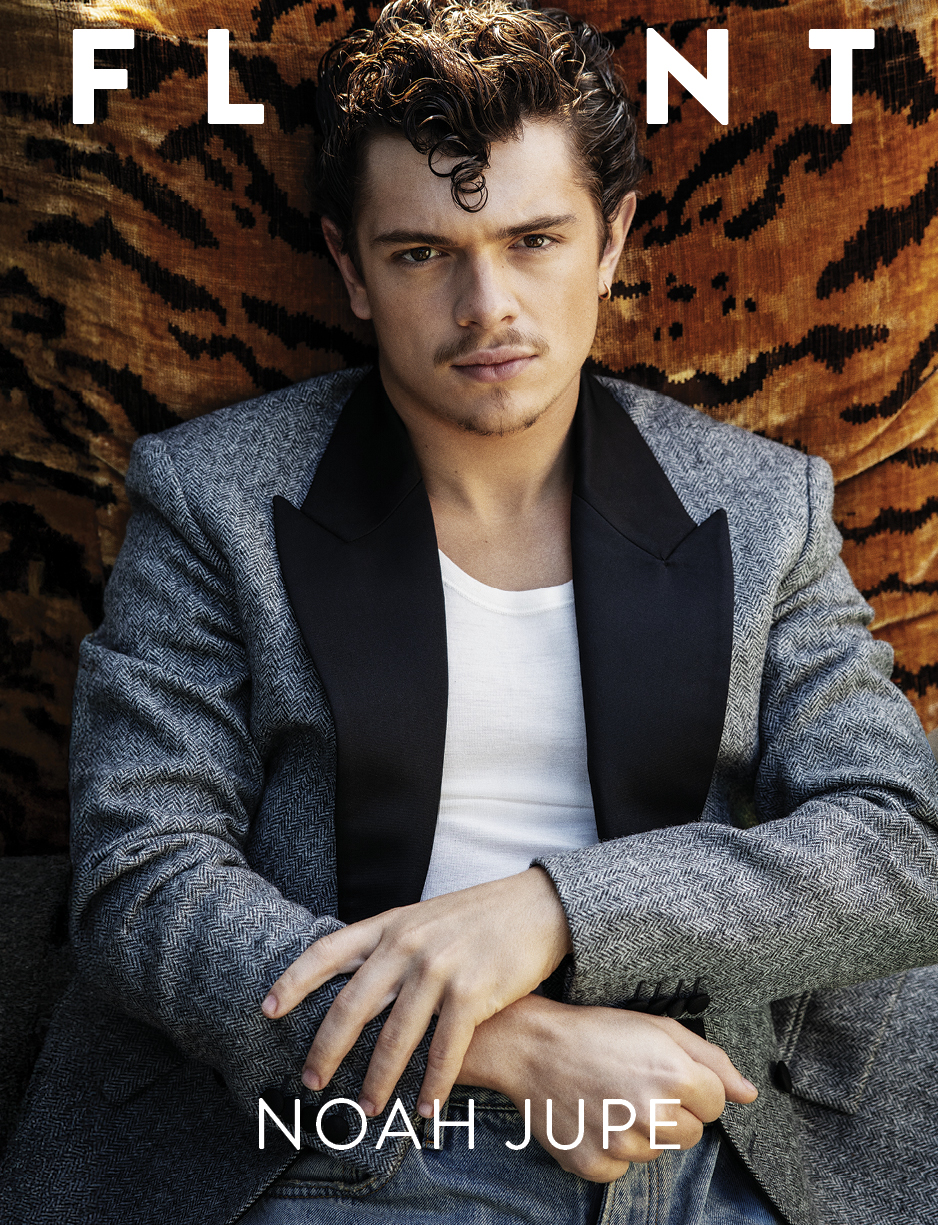

The final frame of [_The Souvenir_](https://youtu.be/t9Al2nC0vzY) shows Julie (Honor Swinton Byrne) in silhouette, the brightness of the natural world pouring into a film studio, as a large gate slides open and she hovers somewhere between reality and its portrayal. With the soundstage to her back and her gaze fixed on the world outside—as it is, real, not depicted—this alone would have given British director Joanna Hogg’s most-personal film a satisfying conclusion, a remark on how thin the line is between what we perceive as real and what we perceive on screen.
Films about filmmaking are abundant and varied, but rarely, if any, get a sequel. [_The Souvenir, Part II_](https://youtu.be/3PR_ZK57c54) is not a sequel. It is the second half of an autobiographical sphere constructed by Hogg to contain (and explain) her own life experience, like two volumes of a single memoir.
Part one reveals Julie as a young film student enchanted by an older intellectual named Anthony (Tom Burke) whose work at the “Foreign Office” sounds as vague, exotic, and truthful as his mumbled lunchtime monologues about the purpose of filmmaking and his reasons for needing yet another monetary loan. Julie lies to her mother Rosalind (Tilda Swinton) claiming these loans are for supplies to help complete her film but are really to help finance Anthony’s drug use.
_The Souvenir_ is Hogg’s recreation of that dizzying time of youth when confusion in matters of love, life, and charting one’s own course can combine to become the source material for art itself. It is about a student who has yet to find within her the thing she is most compelled to express, so Joanna Hogg made that film for her, now. With _Part II_, Hogg returns to Julie, after her relationship with Anthony has ended, to watch her struggle to make the film Hogg has already made in part one. If this all sounds like a muddled experiment in meta filmmaking reserved solely for astute cinephiles, it is not.
_The Souvenir, Part II_ is a near-perfect film, with an astonishing climax, that simultaneously exults in the creation of art from life, as it celebrates all of the clumsy ways in which we try to extract meaning from the messes we’ve made.
* * *
**When Julie attempts her first student film, she decides to focus on people she knows next to nothing about from a faraway place (Sunderland) and convinces her professors this is the subject she is most passionate about. Yet, when she shifts to making a more personal film, about her own life, she gets lost in the material and can’t seem to find the story that _actually_ happened to her. Is it easier for you to articulate what your films are about before or after you’ve made them? Considering the personal nature of these two films, did a similar thing happen to you—was it more difficult to bring the real past to life rather than something entirely imagined?**
I like your question about whether or not I can articulate a film before or after, and I would say neither. I can’t articulate what I am doing before I start doing it and I can’t now. The only time I can maybe have some sense of what I am doing—in a particular moment—is when I am actually shooting the film. Maybe when I’m editing, but already things are starting to fade away. When I’m shooting, that’s when the ideas are the most clear and strong. Then, I forget and I’m the worst pitcher of projects in the universe. If I’m put in a room and I have to tell someone what I want to do, I can’t do that. Because often, it’s not even that I can’t find the words, I don’t actually know yet, until I start the journey of making the film.
So, yeah, maybe Julie is similar to that. She’s able to articulate to her actors when we see her shooting her film, she knows what she wants to capture, but I guess she can’t explain it very well. To find the words to express to an actor, particularly, as you say, when it’s something that’s so close to home, it’s not easy to clarify something that’s happened in your life. I guess the whole project—well, certainly _Part II_—is all about how to express in cinema something that you’ve experienced directly in life.


**So, you don’t know what your film is until you start filming it. But Julie hasn’t yet learned to allow a film to take on a life of its own, even if it is drawn from real life. She’s making a replica of reality, trying to recreate scenes exactly as they happened, instead of letting things happen to her story, in collaboration with her actors, to perhaps reveal a truth or a perspective or even a third story that she couldn’t see while she was living it. In this way, _The Souvenir_ is a mature filmmaker—you—telling a story from real life, while _Part II_ is about you, as a student, trying to make the movie you already made in part one. I’m almost certain that made sense.**
\[Laughs\] No, no. I’m following you. I think the first one, I was aware there was a story I wanted to tell, based on something that happened in my life. And, yes, I chose to make it in a way that allowed other people to contribute to that, who weren’t party to that experience at that time in my life. They couldn’t possibly know. But it is a sort of dance between my memory and wanting to interpret my feelings and my experience of something that happened to me and wanting to express that in the scenes. But that’s not enough for me, because I want that life, I want that immediacy, and it’s not even what I want in the finished film. I enjoy the process of that negotiation. I enjoy working with my performers, my collaborators behind the camera, and forming something. I’m not interested in saying to my cameraman, “I want these precise things in the shot.”
It’s a process of discovery all the time. I don’t know what I’m going to think next, or what Ideas are going to come up next. So, I’m allowing all that change and letting other ideas filter in and happen.
When I was Julie’s age and I was shooting at film school, I didn’t have the confidence to do that. So, you’re right. Julie isn’t able to do that yet. And I’m only just beginning to be able to do that, in a sense. I certainly wasn’t able to then, because I felt too much of the pressure of having to appear as the director, as the person who knows how everything is going to unfold, how everything is going to happen, to have a precise idea of what I wanted in the shot. But the second part is very much about the making of the first part. I really enjoyed observing myself, in a way, and observing everyone else and the mechanics of the shoot and turning that into the second part.
**When the lights went up, someone at the screening said they had hoped there would be a part three, but I think they missed the point. _You_ are part three, hovering above each story, telling the story, and telling the telling of the story—parts one and two are held together as a whole piece. You can’t have three parts to two halves in dialogue with each other, just like you can’t really use a three-legged chair.**
Yeah! The only third part that I could imagine, but I wouldn’t want to make it, is me talking to you right now about both films. \[Laughs\]


**In _Part II_, we watch Julie evolve into an artist, learning more and more as she tries to tell this story of what happened to her and her relationship with this smart, charming, drug-addled intellectual. She is making her life into something creative, and we watch her grow as a person because of it. When you completed these films, did you undergo a similar transformation? In other words, Julie learned how to become a filmmaker. What did you learn by making this pair of films as the “adult Julie” who has now made a few features, along with television and commercial work?**
Gosh, that’s a really hard question to answer because maybe I don’t know. Or I don’t know _yet_. Also, because I haven’t really reflected back on it, so maybe I haven’t really taken full advantage of what I’ve done, on some level, to move me forward. I am moving forward and have made another piece of work. I know you’re not talking specifically about films, but in terms of my life...
**Maybe a better question is: Do you understand yourself better now by trying to retell a portion of your life, which is largely about when _you_ learned how to make films?**
In an odd sort of way, my response to that is, maybe I understand myself less. Hearing Honor \[Swinton Byrne\] speak about the process of making the film and how she feels about it, she is incredibly articulate about what it gave her and what she feels now. I was listening to her, thinking, “Wow, that’s incredible.” I don’t think I’ve got that insight or ability to stand back and look at what it is. I’m just fumbling along, carrying on with my life with my usual doubts about ideas that I have. I’m not sure I can fully answer your question. What tends to happen is that I go through this incredibly intense experience of making a film, and out the other side, it’s almost as if I want to do it all over again, because I’m never able to express everything I want to express.
I could—I’m not going to—but I could tell this story all over again and it would be a very different story. I don’t think I showed every facet of it. Taking part one, for example, I’ve heard people talk about Anthony gaslighting Julie. I realize now, actually, there is an aspect of Julie gaslighting Anthony, but I didn’t show that side because I don’t think I realized that until recently. I could do the whole thing all over again. I’m sure no one really wants that, so I’ll come up with something new \[laughs\]. The story is never over for me. It’s too alive. There are too many things I am trying to express. Life is too complicated. That complexity is impossible to contain in one film, not even two.


**Anthony is a character who has obvious flaws, yet he has a clearer vision for what he thinks art can be or should be. He influences Julie so much, that she even uses what he tells her in the first film and repeats it verbatim to her professors at film school: “We don’t want to see life played out as it is, we want to see life as it is experienced.” What do you think he would make of these two films that you’ve made? Would he consider your films worthwhile, according to his own standards?**
I think on some level he might. But I continually think I have done him a disservice somehow, because it was impossible for me to completely express who that person was. I wasn’t trying to make a portrait of him, anyway. But, yes, I feel on some level, I failed to entirely capture him. But that’s also partly because I still don’t really understand him. I would obviously be curious to know what he thought. He would admire the ambition of it but would probably be very critical of his portrayal. He would have ideas of what I could have done instead. I miss the conversations that I had with this man. They were always incredibly inspiring and challenging and interesting. As is said in the second part, he did have a beautiful mind. I don’t think it’s possible for any film to capture that.


Joanna Hogg, on set, second from right.
 
The final frame of [_The Souvenir_](https://youtu.be/t9Al2nC0vzY) shows Julie (Honor Swinton Byrne) in silhouette, the brightness of the natural world pouring into a film studio, as a large gate slides open and she hovers somewhere between reality and its portrayal. With the soundstage to her back and her gaze fixed on the world outside—as it is, real, not depicted—this alone would have given British director Joanna Hogg’s most-personal film a satisfying conclusion, a remark on how thin the line is between what we perceive as real and what we perceive on screen.
Films about filmmaking are abundant and varied, but rarely, if any, get a sequel. [_The Souvenir, Part II_](https://youtu.be/3PR_ZK57c54) is not a sequel. It is the second half of an autobiographical sphere constructed by Hogg to contain (and explain) her own life experience, like two volumes of a single memoir.
Part one reveals Julie as a young film student enchanted by an older intellectual named Anthony (Tom Burke) whose work at the “Foreign Office” sounds as vague, exotic, and truthful as his mumbled lunchtime monologues about the purpose of filmmaking and his reasons for needing yet another monetary loan. Julie lies to her mother Rosalind (Tilda Swinton) claiming these loans are for supplies to help complete her film but are really to help finance Anthony’s drug use.
_The Souvenir_ is Hogg’s recreation of that dizzying time of youth when confusion in matters of love, life, and charting one’s own course can combine to become the source material for art itself. It is about a student who has yet to find within her the thing she is most compelled to express, so Joanna Hogg made that film for her, now. With _Part II_, Hogg returns to Julie, after her relationship with Anthony has ended, to watch her struggle to make the film Hogg has already made in part one. If this all sounds like a muddled experiment in meta filmmaking reserved solely for astute cinephiles, it is not.
_The Souvenir, Part II_ is a near-perfect film, with an astonishing climax, that simultaneously exults in the creation of art from life, as it celebrates all of the clumsy ways in which we try to extract meaning from the messes we’ve made.
* * *
**When Julie attempts her first student film, she decides to focus on people she knows next to nothing about from a faraway place (Sunderland) and convinces her professors this is the subject she is most passionate about. Yet, when she shifts to making a more personal film, about her own life, she gets lost in the material and can’t seem to find the story that _actually_ happened to her. Is it easier for you to articulate what your films are about before or after you’ve made them? Considering the personal nature of these two films, did a similar thing happen to you—was it more difficult to bring the real past to life rather than something entirely imagined?**
I like your question about whether or not I can articulate a film before or after, and I would say neither. I can’t articulate what I am doing before I start doing it and I can’t now. The only time I can maybe have some sense of what I am doing—in a particular moment—is when I am actually shooting the film. Maybe when I’m editing, but already things are starting to fade away. When I’m shooting, that’s when the ideas are the most clear and strong. Then, I forget and I’m the worst pitcher of projects in the universe. If I’m put in a room and I have to tell someone what I want to do, I can’t do that. Because often, it’s not even that I can’t find the words, I don’t actually know yet, until I start the journey of making the film.
So, yeah, maybe Julie is similar to that. She’s able to articulate to her actors when we see her shooting her film, she knows what she wants to capture, but I guess she can’t explain it very well. To find the words to express to an actor, particularly, as you say, when it’s something that’s so close to home, it’s not easy to clarify something that’s happened in your life. I guess the whole project—well, certainly _Part II_—is all about how to express in cinema something that you’ve experienced directly in life.

The final frame of [_The Souvenir_](https://youtu.be/t9Al2nC0vzY) shows Julie (Honor Swinton Byrne) in silhouette, the brightness of the natural world pouring into a film studio, as a large gate slides open and she hovers somewhere between reality and its portrayal. With the soundstage to her back and her gaze fixed on the world outside—as it is, real, not depicted—this alone would have given British director Joanna Hogg’s most-personal film a satisfying conclusion, a remark on how thin the line is between what we perceive as real and what we perceive on screen.
Films about filmmaking are abundant and varied, but rarely, if any, get a sequel. [_The Souvenir, Part II_](https://youtu.be/3PR_ZK57c54) is not a sequel. It is the second half of an autobiographical sphere constructed by Hogg to contain (and explain) her own life experience, like two volumes of a single memoir.
Part one reveals Julie as a young film student enchanted by an older intellectual named Anthony (Tom Burke) whose work at the “Foreign Office” sounds as vague, exotic, and truthful as his mumbled lunchtime monologues about the purpose of filmmaking and his reasons for needing yet another monetary loan. Julie lies to her mother Rosalind (Tilda Swinton) claiming these loans are for supplies to help complete her film but are really to help finance Anthony’s drug use.
_The Souvenir_ is Hogg’s recreation of that dizzying time of youth when confusion in matters of love, life, and charting one’s own course can combine to become the source material for art itself. It is about a student who has yet to find within her the thing she is most compelled to express, so Joanna Hogg made that film for her, now. With _Part II_, Hogg returns to Julie, after her relationship with Anthony has ended, to watch her struggle to make the film Hogg has already made in part one. If this all sounds like a muddled experiment in meta filmmaking reserved solely for astute cinephiles, it is not.
_The Souvenir, Part II_ is a near-perfect film, with an astonishing climax, that simultaneously exults in the creation of art from life, as it celebrates all of the clumsy ways in which we try to extract meaning from the messes we’ve made.
* * *
**When Julie attempts her first student film, she decides to focus on people she knows next to nothing about from a faraway place (Sunderland) and convinces her professors this is the subject she is most passionate about. Yet, when she shifts to making a more personal film, about her own life, she gets lost in the material and can’t seem to find the story that _actually_ happened to her. Is it easier for you to articulate what your films are about before or after you’ve made them? Considering the personal nature of these two films, did a similar thing happen to you—was it more difficult to bring the real past to life rather than something entirely imagined?**
I like your question about whether or not I can articulate a film before or after, and I would say neither. I can’t articulate what I am doing before I start doing it and I can’t now. The only time I can maybe have some sense of what I am doing—in a particular moment—is when I am actually shooting the film. Maybe when I’m editing, but already things are starting to fade away. When I’m shooting, that’s when the ideas are the most clear and strong. Then, I forget and I’m the worst pitcher of projects in the universe. If I’m put in a room and I have to tell someone what I want to do, I can’t do that. Because often, it’s not even that I can’t find the words, I don’t actually know yet, until I start the journey of making the film.
So, yeah, maybe Julie is similar to that. She’s able to articulate to her actors when we see her shooting her film, she knows what she wants to capture, but I guess she can’t explain it very well. To find the words to express to an actor, particularly, as you say, when it’s something that’s so close to home, it’s not easy to clarify something that’s happened in your life. I guess the whole project—well, certainly _Part II_—is all about how to express in cinema something that you’ve experienced directly in life.
 
**So, you don’t know what your film is until you start filming it. But Julie hasn’t yet learned to allow a film to take on a life of its own, even if it is drawn from real life. She’s making a replica of reality, trying to recreate scenes exactly as they happened, instead of letting things happen to her story, in collaboration with her actors, to perhaps reveal a truth or a perspective or even a third story that she couldn’t see while she was living it. In this way, _The Souvenir_ is a mature filmmaker—you—telling a story from real life, while _Part II_ is about you, as a student, trying to make the movie you already made in part one. I’m almost certain that made sense.**
\[Laughs\] No, no. I’m following you. I think the first one, I was aware there was a story I wanted to tell, based on something that happened in my life. And, yes, I chose to make it in a way that allowed other people to contribute to that, who weren’t party to that experience at that time in my life. They couldn’t possibly know. But it is a sort of dance between my memory and wanting to interpret my feelings and my experience of something that happened to me and wanting to express that in the scenes. But that’s not enough for me, because I want that life, I want that immediacy, and it’s not even what I want in the finished film. I enjoy the process of that negotiation. I enjoy working with my performers, my collaborators behind the camera, and forming something. I’m not interested in saying to my cameraman, “I want these precise things in the shot.”
It’s a process of discovery all the time. I don’t know what I’m going to think next, or what Ideas are going to come up next. So, I’m allowing all that change and letting other ideas filter in and happen.
When I was Julie’s age and I was shooting at film school, I didn’t have the confidence to do that. So, you’re right. Julie isn’t able to do that yet. And I’m only just beginning to be able to do that, in a sense. I certainly wasn’t able to then, because I felt too much of the pressure of having to appear as the director, as the person who knows how everything is going to unfold, how everything is going to happen, to have a precise idea of what I wanted in the shot. But the second part is very much about the making of the first part. I really enjoyed observing myself, in a way, and observing everyone else and the mechanics of the shoot and turning that into the second part.
**When the lights went up, someone at the screening said they had hoped there would be a part three, but I think they missed the point. _You_ are part three, hovering above each story, telling the story, and telling the telling of the story—parts one and two are held together as a whole piece. You can’t have three parts to two halves in dialogue with each other, just like you can’t really use a three-legged chair.**
Yeah! The only third part that I could imagine, but I wouldn’t want to make it, is me talking to you right now about both films. \[Laughs\]

**So, you don’t know what your film is until you start filming it. But Julie hasn’t yet learned to allow a film to take on a life of its own, even if it is drawn from real life. She’s making a replica of reality, trying to recreate scenes exactly as they happened, instead of letting things happen to her story, in collaboration with her actors, to perhaps reveal a truth or a perspective or even a third story that she couldn’t see while she was living it. In this way, _The Souvenir_ is a mature filmmaker—you—telling a story from real life, while _Part II_ is about you, as a student, trying to make the movie you already made in part one. I’m almost certain that made sense.**
\[Laughs\] No, no. I’m following you. I think the first one, I was aware there was a story I wanted to tell, based on something that happened in my life. And, yes, I chose to make it in a way that allowed other people to contribute to that, who weren’t party to that experience at that time in my life. They couldn’t possibly know. But it is a sort of dance between my memory and wanting to interpret my feelings and my experience of something that happened to me and wanting to express that in the scenes. But that’s not enough for me, because I want that life, I want that immediacy, and it’s not even what I want in the finished film. I enjoy the process of that negotiation. I enjoy working with my performers, my collaborators behind the camera, and forming something. I’m not interested in saying to my cameraman, “I want these precise things in the shot.”
It’s a process of discovery all the time. I don’t know what I’m going to think next, or what Ideas are going to come up next. So, I’m allowing all that change and letting other ideas filter in and happen.
When I was Julie’s age and I was shooting at film school, I didn’t have the confidence to do that. So, you’re right. Julie isn’t able to do that yet. And I’m only just beginning to be able to do that, in a sense. I certainly wasn’t able to then, because I felt too much of the pressure of having to appear as the director, as the person who knows how everything is going to unfold, how everything is going to happen, to have a precise idea of what I wanted in the shot. But the second part is very much about the making of the first part. I really enjoyed observing myself, in a way, and observing everyone else and the mechanics of the shoot and turning that into the second part.
**When the lights went up, someone at the screening said they had hoped there would be a part three, but I think they missed the point. _You_ are part three, hovering above each story, telling the story, and telling the telling of the story—parts one and two are held together as a whole piece. You can’t have three parts to two halves in dialogue with each other, just like you can’t really use a three-legged chair.**
Yeah! The only third part that I could imagine, but I wouldn’t want to make it, is me talking to you right now about both films. \[Laughs\]
 
**In _Part II_, we watch Julie evolve into an artist, learning more and more as she tries to tell this story of what happened to her and her relationship with this smart, charming, drug-addled intellectual. She is making her life into something creative, and we watch her grow as a person because of it. When you completed these films, did you undergo a similar transformation? In other words, Julie learned how to become a filmmaker. What did you learn by making this pair of films as the “adult Julie” who has now made a few features, along with television and commercial work?**
Gosh, that’s a really hard question to answer because maybe I don’t know. Or I don’t know _yet_. Also, because I haven’t really reflected back on it, so maybe I haven’t really taken full advantage of what I’ve done, on some level, to move me forward. I am moving forward and have made another piece of work. I know you’re not talking specifically about films, but in terms of my life...
**Maybe a better question is: Do you understand yourself better now by trying to retell a portion of your life, which is largely about when _you_ learned how to make films?**
In an odd sort of way, my response to that is, maybe I understand myself less. Hearing Honor \[Swinton Byrne\] speak about the process of making the film and how she feels about it, she is incredibly articulate about what it gave her and what she feels now. I was listening to her, thinking, “Wow, that’s incredible.” I don’t think I’ve got that insight or ability to stand back and look at what it is. I’m just fumbling along, carrying on with my life with my usual doubts about ideas that I have. I’m not sure I can fully answer your question. What tends to happen is that I go through this incredibly intense experience of making a film, and out the other side, it’s almost as if I want to do it all over again, because I’m never able to express everything I want to express.
I could—I’m not going to—but I could tell this story all over again and it would be a very different story. I don’t think I showed every facet of it. Taking part one, for example, I’ve heard people talk about Anthony gaslighting Julie. I realize now, actually, there is an aspect of Julie gaslighting Anthony, but I didn’t show that side because I don’t think I realized that until recently. I could do the whole thing all over again. I’m sure no one really wants that, so I’ll come up with something new \[laughs\]. The story is never over for me. It’s too alive. There are too many things I am trying to express. Life is too complicated. That complexity is impossible to contain in one film, not even two.

**In _Part II_, we watch Julie evolve into an artist, learning more and more as she tries to tell this story of what happened to her and her relationship with this smart, charming, drug-addled intellectual. She is making her life into something creative, and we watch her grow as a person because of it. When you completed these films, did you undergo a similar transformation? In other words, Julie learned how to become a filmmaker. What did you learn by making this pair of films as the “adult Julie” who has now made a few features, along with television and commercial work?**
Gosh, that’s a really hard question to answer because maybe I don’t know. Or I don’t know _yet_. Also, because I haven’t really reflected back on it, so maybe I haven’t really taken full advantage of what I’ve done, on some level, to move me forward. I am moving forward and have made another piece of work. I know you’re not talking specifically about films, but in terms of my life...
**Maybe a better question is: Do you understand yourself better now by trying to retell a portion of your life, which is largely about when _you_ learned how to make films?**
In an odd sort of way, my response to that is, maybe I understand myself less. Hearing Honor \[Swinton Byrne\] speak about the process of making the film and how she feels about it, she is incredibly articulate about what it gave her and what she feels now. I was listening to her, thinking, “Wow, that’s incredible.” I don’t think I’ve got that insight or ability to stand back and look at what it is. I’m just fumbling along, carrying on with my life with my usual doubts about ideas that I have. I’m not sure I can fully answer your question. What tends to happen is that I go through this incredibly intense experience of making a film, and out the other side, it’s almost as if I want to do it all over again, because I’m never able to express everything I want to express.
I could—I’m not going to—but I could tell this story all over again and it would be a very different story. I don’t think I showed every facet of it. Taking part one, for example, I’ve heard people talk about Anthony gaslighting Julie. I realize now, actually, there is an aspect of Julie gaslighting Anthony, but I didn’t show that side because I don’t think I realized that until recently. I could do the whole thing all over again. I’m sure no one really wants that, so I’ll come up with something new \[laughs\]. The story is never over for me. It’s too alive. There are too many things I am trying to express. Life is too complicated. That complexity is impossible to contain in one film, not even two.
 
**Anthony is a character who has obvious flaws, yet he has a clearer vision for what he thinks art can be or should be. He influences Julie so much, that she even uses what he tells her in the first film and repeats it verbatim to her professors at film school: “We don’t want to see life played out as it is, we want to see life as it is experienced.” What do you think he would make of these two films that you’ve made? Would he consider your films worthwhile, according to his own standards?**
I think on some level he might. But I continually think I have done him a disservice somehow, because it was impossible for me to completely express who that person was. I wasn’t trying to make a portrait of him, anyway. But, yes, I feel on some level, I failed to entirely capture him. But that’s also partly because I still don’t really understand him. I would obviously be curious to know what he thought. He would admire the ambition of it but would probably be very critical of his portrayal. He would have ideas of what I could have done instead. I miss the conversations that I had with this man. They were always incredibly inspiring and challenging and interesting. As is said in the second part, he did have a beautiful mind. I don’t think it’s possible for any film to capture that.

**Anthony is a character who has obvious flaws, yet he has a clearer vision for what he thinks art can be or should be. He influences Julie so much, that she even uses what he tells her in the first film and repeats it verbatim to her professors at film school: “We don’t want to see life played out as it is, we want to see life as it is experienced.” What do you think he would make of these two films that you’ve made? Would he consider your films worthwhile, according to his own standards?**
I think on some level he might. But I continually think I have done him a disservice somehow, because it was impossible for me to completely express who that person was. I wasn’t trying to make a portrait of him, anyway. But, yes, I feel on some level, I failed to entirely capture him. But that’s also partly because I still don’t really understand him. I would obviously be curious to know what he thought. He would admire the ambition of it but would probably be very critical of his portrayal. He would have ideas of what I could have done instead. I miss the conversations that I had with this man. They were always incredibly inspiring and challenging and interesting. As is said in the second part, he did have a beautiful mind. I don’t think it’s possible for any film to capture that.
 
Joanna Hogg, on set, second from right.

Joanna Hogg, on set, second from right.
